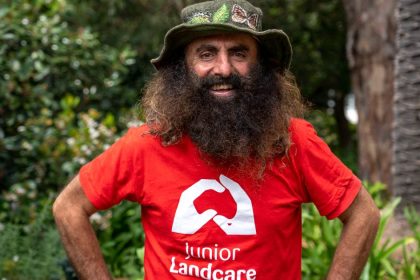Written by:
John Buchanan, University of Sydney and Frances Flanagan, University of Technology Sydney
From December the typical early childhood educator and carer will get a pay rise of at least $103 per week. By the following December, it will be more, taking the total to an extra $155 per week.
And there will be more after that.
The two pay rises, totalling 15 per cent, announced by Prime Minister Anthony Albanese on Thursday will be completely funded by the government. It’s part of a deal in which the childcare centres that actually employ the workers agree to increase their fees by no more than 4.4 per cent over the next year.
The initiative, years in the making, is a down payment on a bigger increase expected when the Fair Work Commission completes its review of the wages of workers in childcare and some other caring professions by mid-2025.
An earlier decision about aged care workers awarded increases up to 28.5 per cent.
Albanese’s move is good social and educational policy, and even better politics.
A (partial) remedy for gender pay inequity
Employees in the early childhood education and care sector are among the lowest-paid of all professions with median weekly earnings less than two-thirds of median adult earnings. The starting salary for adults is about $24 per hour.
Attracting and retaining workers in the sector has been a chronic problem.
Australia’s childcare industry has one of the largest unfilled vacancy ratios of any occupation. In the Sydney region, childcare is the top occupation where vacancies outstrip applications. Early childhood teaching is the fourth-highest.

The government’s decision to increase wages early, without waiting for an order from the Fair Work Commission, is very welcome.
Until the current Fair Work hearing, child carers and childhood educators themselves had to prosecute costly and complex cases using laws that were poorly designed to deal with gender-based undervaluation of care work.
The Fair Work Commission’s new approach derives from the Albanese government’s 2022 reform of the Fair Work Act that directed it to
promote job security and gender equality.
In late 2023, the commission received a report on the effect of gender-based occupational segregation. In early 2024 it decided to grant pay increases of between 15 per cent and 28.5 per cent for aged care workers. Its decision was based on a finding that their work had been historically undervalued because of assumptions based on gender.
At this year’s annual wage review, the commission announced it would undertake the same exercise for childhood educators and carers and a number of other caring professions. The results will be incorporated in next year’s review.
Another Albanese reform brought in multi-employer bargaining, allowing 64 early education and care employers and three unions to bargain collectively.
The United Workers Union has been asking for a 25 per cent increase. One of the big employers, the Australian Securities Exchange-listed G8, called on the government to fund a 15 per cent hourly wage increase for specialist educators and a 10 per cent increase for all early childhood educators.
These developments represent a significant shift in wages policy and relative pay, one likely to more properly value care work and get unfilled vacancies filled.
Good education policy
Demand for early childhood education and care is high and rising.
Between 2014-15 and 2022-23 the proportion of children aged five years and under getting subsidised places rose from 40.8 per cent to 49.9 per cent.
In terms of developing future citizens, this is a great achievement. But it is less so in terms of fees. Most of the growth was in private centres, which are mostly run for profit.
The Australian Competition and Consumer Commission found last year that early childhood education and care was less affordable in Australia than in most other developed countries.

Average daily fees at centre-based day care climbed 20 per cent between September 2018 and July 2023. Out-of-pocket expenses increased by seven per cent.
The fees paid by families are a significant burden on them. Industrial relations expert Rae Cooper says they form part of the architecture of discrimination that limits women’s ability to work.
The deal accompanying Albanese’s pay rise for workers doesn’t impose a cap on fees, but it does require providers to not increase their fees by more than 4.4 per cent over the next 12 months.
Whether this is the beginning of tighter quality and cost controls in ways seen as essential in a recent Productivity Commission report remains to be seen.
Good inflation policy
The measures will cost $3.6 billion over four years.
Whereas some argue that extra government spending necessarily increases inflation, this extra spending will restrain fee increases at the same time as it boosts wages for a sizeable number of traditionally underpaid workers.
Merely accepting a Fair Work Commission decision on work value without providing funding for it and without obtaining guarantees on fees would have added to the inflation experienced by parents much more.
Good politics, for now
Deep problems remain with Australia’s system of early education and care.
Despite massive government subsidies, fees are high by world standards.
The basic architecture of the system, set up in the Hawke-Keating era, uses public money to fund a market of providers in which for-profits form the majority.
But this package of initiatives is an important step towards fixing things.
Families with young children face huge pressures from rising rents and interest rates. Insulating them from fee increases, at least for the next 12 months, is smart politics. It’s a down payment on work to come.
John Buchanan, Professor, Discipline of Business Information Systems, University of Sydney Business School, University of Sydney and Frances Flanagan, Lecturer in Law, University of Technology Sydney
This article is republished from The Conversation under a Creative Commons license. Read the original article.







